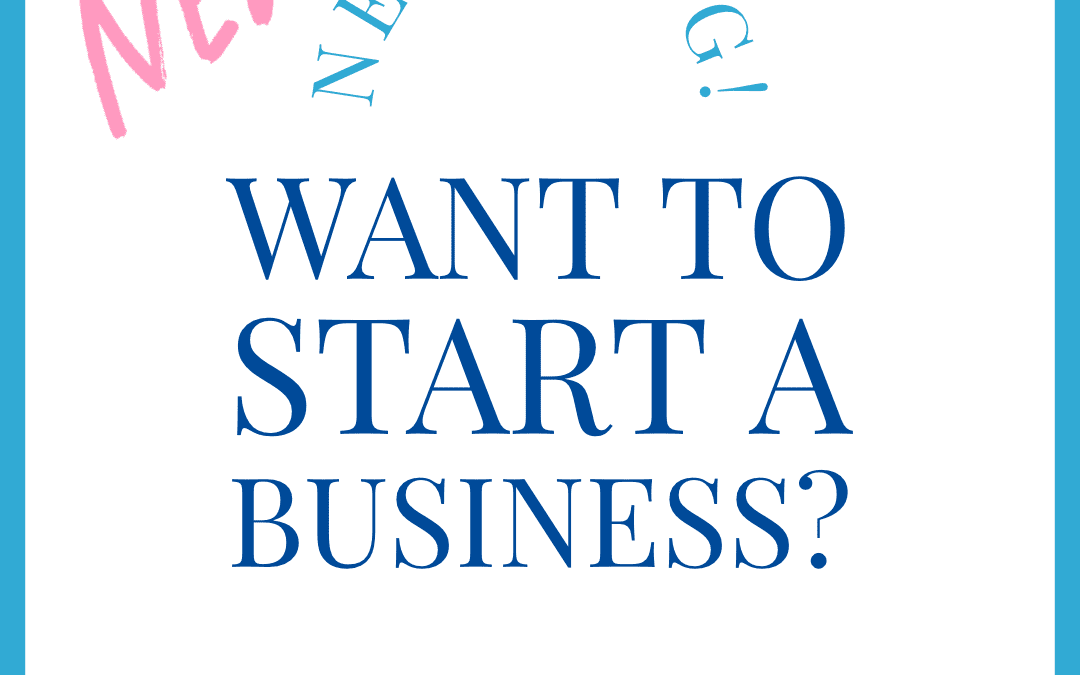
Have you been thinking about embarking on the exciting journey of launching your own business? Being a business owner can be an exciting opportunity, although there is a lot to consider before you jump in feet first. Here are the first 10 steps you should take if you want to start a business.
Step 1: Conduct Research
Do you have a business idea? It’s time to see how feasible it is, and whether it can really succeed. For a business to be feasible, there needs to be a demand for the product or service. Ask yourself:
- Who needs this product or service?
- What pain point is it fixing?
- Is there much of a competition?
- How will your business fit in with the market currently?
- Are you really ready to start a business?
- Have you thought about the finances?
- Are you passionate about your idea?
- Have you thought about how you will get In front of your audience?
Step 2: It’s Time to Make a Plan
A business plan will be your guide through starting up, right through to being established. There are two different business plans, depending on finances.
The first plan is a traditional one. This is needed when you want to gain an investor, or financial support. This will have sections which investors and banks will look at, to see the validity of your idea and to see whether or not they will help fund your business.
The other business plan is a simple one-page business plan for when you don’t intend to seek that financial support. In this plan, you just need to lay out your ideas, goals and how you plan to achieve them. This can be a work in progress, as we all know, plans can change with time.
Step 3: Thinking about Your Finances
Most small businesses will need a little investment to begin with. You will also need to be able to cover your ongoing expenses, such as rent and utilities, before you turn over a profit. A spreadsheet will help you to estimate the one-off start-up costs, such as licenses and market research.
Use the spreadsheet to plan the first 12 months of business, and project what you may spend on rent, utilities, marketing, supplies and your own salary.
Both of those numbers combined will be your initial set up fees, and the potential investment that you will need. Thankfully, there are quite a few options out there for small businesses. These include:
- Financing
- Crowdfunding
- Small business loans
- Small business grants
- Angel investors
- Bootstrapping
Look into all of these avenues before you decide what is best for your business.
Step 4: What’s Your Business Structure?
Have you thought whether you will be a sole trader, a partnership or a limited liability company? Or are you going to be a corporation? Dependent on the business entity you choose, will depend on your business name, your liability, as well as how your taxes are filed.
This doesn’t have to be set in stone forever, as your business grows, you may want to change its structure.
Step 5: Registering Your Business Name
Think of a great business name and go through all the potential hurdles you may face with it. You will need to check if it is trademarked or in current use. Then once you have the all clear, you should register it. Remember to register for a domain name too!
Step 6: Licenses and Permits
It is really important to have your paperwork all together when launching your business. Depending on your type of business, there may be small business licenses and permits you will require. Research what applies to you in the start-up process.
Step 7: Your Accounting System
Want to make sure your business is smooth sailing? Then you need a system in place for your finances. An accounting system will help you to conduct business with others, keep an eye on cash flow, file your taxes and so on. You can either do this yourself or hire an accountant to take away the stress of managing your own finances. That way you can get back to doing what you do best for the business.
Step 8: Location
You will need to have a place of business in order to operate. Is this a home office? A shared or private office space? Or will you have a retail location?
Not only do you need to think about your space, but the equipment and set up you will need.
Step 9: Your Team
Will you be hiring employees? Outline the positions you need to fill and what responsibilities they will have. Think about where you will advertise the position.
If you are not hiring any employees, will you outsource to independent contractors? If so, you will need to have an agreement in place.
If you are going it alone initially, then think about what support circle you will need. Will you want a business mentor or coach? Or will you turn to friends and family for advice? You will need people to turn to in the tough times, and to help celebrate the successes with.
Step 10: Time to Get Out There
Now it’s time to get yourself out there and attract clients and customers. Think about your USP, write an elevator pitch and prepare a marketing plan.
After all these 10 steps are done, you will have the most important elements of starting a business covered. Success doesn’t happen overnight but use your plan to keep you on the right track.
Need Further Advice on Setting Up Your Business?
Here at McCarthy Browne, we can support you with a one to one ‘Business Start-Up Consultation’ for £49 an hour. During this hour, we will give you advice on what business structure you should go for, which accounting software to go with and also key things you need to consider when setting up a business, such as becoming an employer and your business structure.
If you then need further help with outsourcing your finances, we are can do that too. Take the stress off your shoulders, we are a friendly accounting firm, who loves to help start-up businesses take that plunge and see success!
Get in touch today to find out more.

